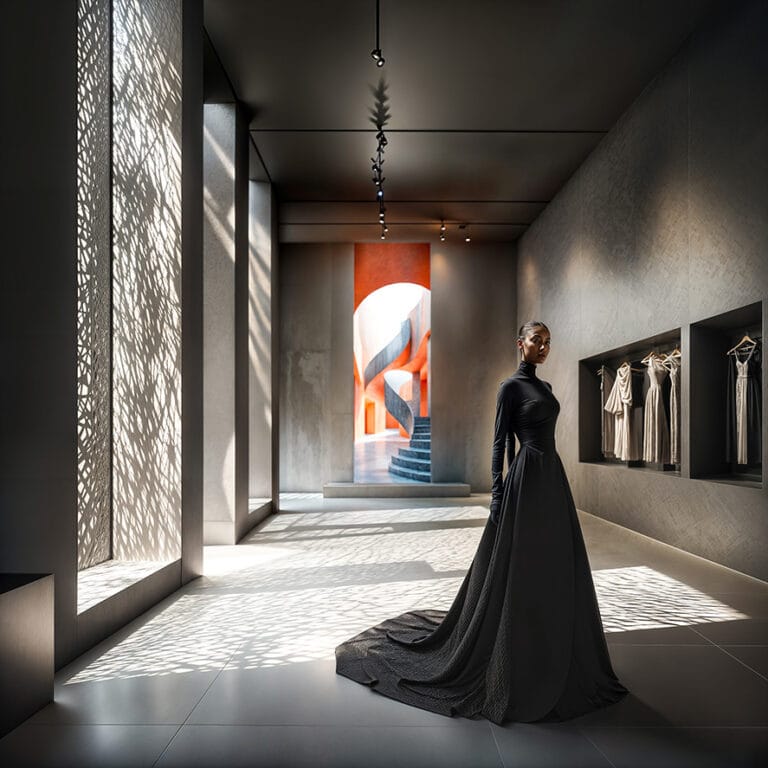Have you heard about Gucci’s latest partnership with 10VKT for its NFT project titled ‘ Gucci Grail‘? Or about ‘Nikeland‘ by Nike to let its customers try on virtual sneakers? Or Louis Vuitton’s launch of ‘Louis the Game‘ on its 200th anniversary? If yes, what do you think is common between these major ambitious projects by the luxury brands? Yes, the common space among these actions is the metaverse.
Considering how million dollar worth of luxury brands are taking active steps in establishing themselves in the metaverse, it sure has to be multiple times worth their efforts. Here is a brief glimpse of why, as a brand, you need to move your pieces onto the metaverse board.
- Gen Z is expected to account for 40% of the total luxury sales by 2035 and this soon-to-be largest consumer domain is a tech-savvy and major driver of metaverse development.
- NFTs, that are traded in the online universes, have seen a 2.5 billion dollars rise since the pandemic.
- Worldwide, metaverse base technologies, AR, VR, and MR are set to reach 300 billion US dollars by 2024.
- Decentraland property sales surpassed 75,000 garnering a total amount of 25 million dollars.
Putting together the rising trends, it is evident that online worlds like metaverse are soon going to be a part of everyone’s lives. Just like you’ve built your brand in the real world, you should start building your virtual presence in the metaverse.
Looking to Enter the Metaverse? Start by Downloading our FREE Digital Fashion Guide now!
The metaverse, a term coined by author Neal Stephenson in his 1992 science fiction novel, has been trending on Google since April 2021. With tech giants like Facebook announcing the creation of their versions of the metaverse, its word has since spread rapidly across all industries. As aforementioned, the luxury fashion industry has already made moves to establish itself in web 3.0.s
In this following blog, we’ll take you through the following:
What is the Metaverse?
Metaverse is made up of two words: Meta meaning beyond and verse taken from ‘universe.’ The successor of the internet, the metaverse is where the digital world increasingly converges with the physical world. It is a fully interactive world with 3D Virtual Spaces that works just the same as real life. Recently, Epic Games announced that it had completed a $1 billion funding to support its long-term vision for the metaverse.
There has yet to be a precise definition that clearly explains what the metaverse is all about. Yet, this doesn’t stop industries like luxury fashion from entering and expanding in this enticing realm.
Luxury Brands in the Metaverse
For many years, luxury brands were wary of anything that reflected digital or online transformation. Until the pandemic, the bulletproof industry stood by its iron-clad rules and only interacted directly with consumers. But as the health crisis extended, high-end brands had to adapt means of digitization. The current metaverse opportunities are encouraging brands like yours to continue innovating and stray away from traditional methods.
Brands like Gucci and Vans have already created their branded virtual world. Specifically, Gucci Garden Archetypes on Roblox is a multimedia experience that takes consumers on an immersive journey. Many brands like Burberry have already minted their digital assets as NFTs for consumers to purchase them in the metaverse. Additionally, the LVMH-owned luggage brand Rimowa is already on its way to auctioning its first-ever NFT products in the metaverse.




Factors Influencing Fashion Brands in Virtual Universes
Tech-savvy Consumer Domain
Currently, Generation Z is leading the creation and expansion of the metaverse. Highly interested in virtual worlds, these digital natives are most likely to indulge in luxury digital fashion in Metaverse. You have to closely watch this new consumer domain and craft your strategies accordingly to succeed in the online world.
Rise of Online Personas
Nowadays, everyone maintains two separate appearances: physical and online. While luxury brands already cater to physical appearance needs, the same can’t be said for online appearances. In metaverses, online personas are going to be as important as real life. Hence, this gives a significant push to your brand to create digital accessories and clothing.
Sustainability Goals
More than ever, the luxury fashion industry is under steep pressure to lower its carbon footprints and adopt sustainability practices. Through metaverse, luxury brands can continue building their legacies while adhering to green living practices. You can create as many digital pieces as possible with little harm to the environment.
Build yourself in the Metaverse by downloading our FREE digital fashion guide.
Piracy Prevention
Counterfeits goods constitute a significant problem that luxury fashion brands face. This issue can be efficiently solved in metaverses. By trading their goods as NFTs, luxury brands can track their products and find out any fake goods circulating around. Since ownership details are permanently recorded in Ethereum, pirated goods are impossible to buy or sell in metaverses.
Experience Gravity
The need for immersive experiences has taken a hit during the pandemic. Due to the social distancing forms, virtual and augmented reality experiences became mainstream. Luxury brands have to integrate their products and services with these advanced technologies to provide a premium feel to the consumers. A new way to engage with your consumers on a personal level!
How does High-End Fashion Work in the Metaverse?
NFTs
Top luxury brands can utilize the opportunities through digital apparel and NFTs. By trading garments as non-fungible tokens, your brand can prevent the purchase of counterfeit goods.
Through NFTs, you can now tag your goods to track and display a product’s information efficiently. Furthermore, you can also earn a commission on every re-sale. Recently, luxury brand Dolce & Gabbana announced the launch of its NFT collection.
Touchpoint
Many luxury brands are in favor of building their metaverses despite their nature of contradicting exclusivity. This is because a metaverse resembles a community in real life, and brands can customize them according to their identity. Many experts are hoping this becomes a new touchpoint to communicate with the Gen Z audience.
Gaming
Gaming is a major part of metaverses, and high-end brands have already entered this realm. Through digital garments and accessories, they present their latest creations on game characters.
Since the pandemic, many popular luxury brands have been increasingly collaborating with the gaming industry. Last year, the Italian brand Valentino showcased its 2020 Spring & Summer Collection in Nintendo’s “Animal Crossing: New Horizons” game. Gucci also created and sold four sportswear lines for the characters of the Tennis Clash game.
Welcome to the Future of Fashion
The Future of Fashion is here already. With the growth of metaverse, the digital transition of luxury brands has accelerated dramatically. Although skepticism still exists, metaverses present a lot of opportunities to fashion labels. Therefore, as a brand wanting to grow immensely, you have to be fast in establishing yourself in virtual universes.
Jump into the metaverse world of opportunities by downloading our FREE Digital fashion guide today!

